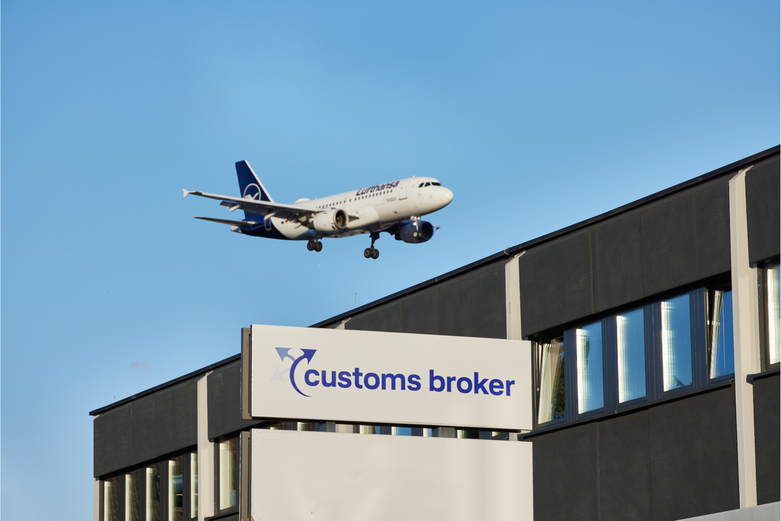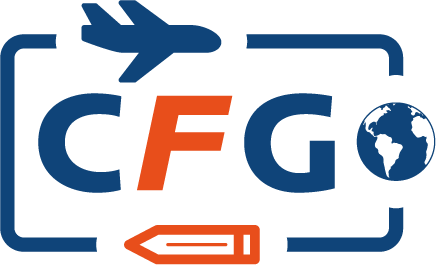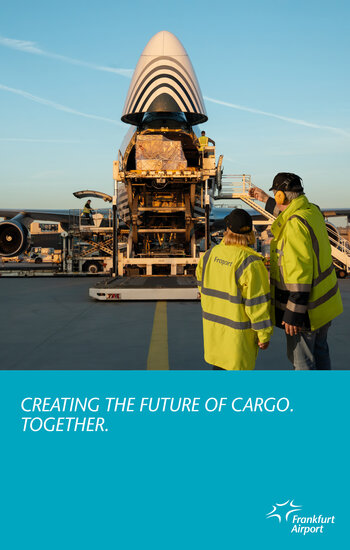If performed exceptionally well, customs clearance resembles a precise Swiss clockwork mechanism. If not, it is like an old wind-up clock that frequently stops running. Seen from this angle, customs procedures can either be a bottleneck or an additional accelerator of imports or exports passing through airports or seaports. One reputable service provider, enabling the fast flow of goods, is the Frankfurt-based agency CB Customs Broker GmbH. The agent has been part of Lufthansa Cargo Group since 2018.
And these are the rules of the proceedings: For all items, coming from third countries and entering the EU, a customs declaration must be submitted. However, duties must only be paid for goods whose value exceeds €150. Imports with a lower value are exempt from duties under the de-minimis rule, which applies in particular to e-commerce shipments. But whatever the value, customs officials must register the items first, followed by their clearance.
What sounds easy at first sight is highly complicated in everyday practice. This is because the EU harmonized Customs Tariff Code demands that each individual product must be clearly identifiable by the authorities based on accompanying documentation. The Code begins with HS and consists of eleven digits that indicate the category of goods in order to assign them to specific tax rates.

Highly complex matter
These are the basic rules that apply to all parties involved in customs procedures. The list of participants ranges from forwarding agents, trading firms, airlines or specialized agencies such as CB Customs Broker, for instance. In reality, customs matters are highly complex. This applies particularly to a broker like CB that clears 25+ million e-com shipments a year, a volume handled in 2024. But the field of responsibilities is even more complex, because in addition to e-Com items, there are also perishables, dual-use goods, medical products and dozens of other consignments passing the EU borders that require the expertise of specialist for being cleared by customs officials. The hurdle is, however, that not every customs department, such as that of a small or medium-sized freight forwarder, for instance, is familiar with all the different categories and allocation of goods, be it customs value issues, the exact origin of a product, dual-use goods, perishables or the EU’s new Import Control System 2 (ICS2).
Precise product allocation is key
For example, Chapter 12 of the European Customs Portal illustrates how complex and demanding the daily practice is. The products listed there include items like oilseeds and oleaginous fruits, plants for industrial or medicinal use, straw and fodder. Brief comment from Alla Franjkovic, Marketing + Communication Manager: “Customs laws and regulations are a highly complex subject, it changes frequently, and mistakes can be expensive,” she summarizes the pitfalls.
When addressed by CargoForwarder Global she says that around 75% of all eCommerce clearances carried out by CB Customs Broker in Frankfurt are for goods flown by Lufthansa Cargo, and 25% by other airlines. Their share is steadily growing but not by leaps and bounds.
The digital eCommerce tool developed by the agent and introduced in 2020 complement Lufthansa Cargo’s supply chain from the moment the aircraft lands to the last mile, rounding off the services rendered. As a member of the Lufthansa Cargo Group, additional contacts and market opportunities result from this link, CB Managing Director, Uwe Glunz stresses. “For new customers in particular, being part of the Group is strong proof of our reliability and quality. Both sides benefit from the synergies – and ultimately the customer above all,” he states.
Eyeing new horizons
A total of 300 company names stands on the agent’s list of clients. In addition to processing 2.5 million eCommerce shipments per month in Frankfurt, the company handles approximately 15,000 other import and export declarations. These are transported not only by air, but also by sea, rail, and road.
In addition to Frankfurt, CB Customs Broker has established a second office at Amsterdam Airport Schiphol. Its employees are currently examining the Belgian market for further expansion, confirms Alla Franjkovic: “We continue to pursue a European internationalization strategy. A first step was the establishment of our location in Amsterdam, where we are now represented by a dedicated team. The local team is also examining Belgium as a possible further location.” This will be decided by the end of the year with other markets to follow. “We consistently focus on the needs of our customers and go exactly where our customers need us,” says the manager.
More is upcoming
In our next issue, we will report on the professional requirements needed to become a customs agent. At the same time, we will shed light on why customs agents have an unjustified public reputation for being bureaucratic and how the attractiveness of this extremely responsible field of work could be increased. So please stay tuned.




